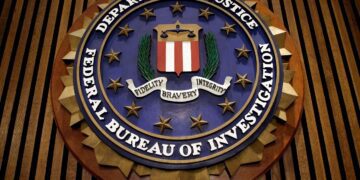Chicago media jumped on the Smollett story
By Hank Beckman –
If people found guilty of crimes motivated by bias—hate crimes—deserve a harsher penalty than those same crimes where no evidence of bias exists, how should we deal with the miscreants among us who lie about hate crimes?
Hate crime laws vary by state, but the rationale behind enhanced penalties for crimes resulting from racial bias, religious bigotry, or malice toward other protected groups is succinctly explained by the Department of Justice on its web site.
“Hate crimes have a broader effect than most other kinds of crimes,” reads the relevant section. “Hate crime victims include not only the crime’s immediate target, but also others like them.”
Sounds reasonable.
One can argue that there are already enough laws addressing all manner of crimes against individuals and that hate crimes do nothing more than attempt to regulate thought. There is also an argument to be made that the added penalties have no real effect on reducing bias crimes. But those are arguments for another day.
Fair-minded people of all races and political persuasions typically recoil at crimes directed at individuals because of the immutable characteristic of a race, gender, what religion they practice, or what their sexual preference might be.
So if most agree that there should be extra punishment doled out to our bigoted neighbors when they act on their worst instincts, what to do with those who maliciously claim to be the victim of a bias crime when none exists?
When Jussie Smollett spun what appears to be a fantasy about being attacked by MAGA-hat wearing Trump supporters in the bluest neighborhood in the Midwest on the coldest night in recent memory—and fighting them off while simultaneously talking to his manager on his cell phone and holding on to his Subway sandwich—a persuasive argument would be that the alleged lie had the “broader effect” of casting doubt and suspicion on Trump supporters, Republicans, and white people everywhere.
The reaction to the allegation was predictable. To use a phrase that’s often part of the mainstream media’s default description when it comes to describing Republican political rhetoric, leftists immediately pounced.
The incident, which we now know was almost certainly a complete fantasy concocted to boost his career, was front-page, above the fold news in almost every newspaper in America. It was the subject of heated denunciations from prominent public figures, not the least of whom were President Donald Trump and then-Senator Kamala Harris, now a heartbeat away from Lincoln’s Chair. (And will likely be sitting in that chair before long)
Before any investigation was complete, absent any evidence save the claim itself, prominent CNN anchor Brooke Baldwin breathlessly intoned “this is America, 2019,” effectively affirming for her audience that we are a nation seething with hatred toward blacks, gay people, and anyone else who isn’t a straight, white, Christian male.
The actor Ellen (now Elliot) Page provided clear evidence that false hate crime charges had the effect of stigmatizing not just the alleged perpetrators of the crime, but “others like them,” in this case the Trump administration and its supporters.
Appearing on Stephen Colbert’s Late Show, she essentially said that a prime reason Smollett was attacked was the homophobic nature so prevalent in so many Americas.
Page singled out the Trump Administration, in particular Vice President Mike Pence, for creating an environment of intolerance toward the LGBTQ community.
She pointed to his opposition to same-sex marriage and supposed support for conversion therapy as examples of Pence spending his career hurting the LGBTQ community.
“Connect the dots,” she said emotionally. “This is what happens…what do you think is going to happen.”
If an allegedly false police report results in an influential celebrity accusing an entire group of people of being responsible for a bias crime doesn’t qualify as reflecting on “others like them,” then the Justice Department’s definition and rationale for hate crime laws has no practical meaning.
It would be one thing if the Jussie Smollett case was an outlier, but it’s not as if we haven’t seen this movie repeatedly in recent years.
The Duke LaCrosse “rape case,” the bogus Rolling Stone fraternity rape story, the Covington Catholic kids supposedly harassing an elderly Native America, and Brett Kavanaugh being accused of sexually assaulting a woman no one can prove he ever met are just the most notorious examples of incidents that were represented as being crimes that were the result of bias of one form or another.
Wilfred Reilly, a professor of Political Science at Kentucky State University, examined the phenomena of hate crime hoaxes in his 2018 book, “Hate Crime Hoax: How the Left is Selling a Fake Race War.”
Reilly compiled a data base of 346 hate crime allegations and found that fewer than one-third turned out to be based on fact. He also put together a data base of more than 400 cases between 2010 and 2017 that had been confirmed as hoaxes.
Colleges and universities seem to be particularly susceptible to hate crime hoaxes. Anyone paying attention to local news around the nation is aware that it isn’t at all unusual for college students to invent incidents of bias.
(Although every allegation of a hate crime should be investigated, the skeptics among us can’t help but notice the details that fairly scream “BS” that often accompany college hate crime hoaxes. The hoaxers would have us believe that blacks are regularly threatened with “nooses” and signs announcing the presence of the “KKK.” We should all fear for an education system that produces people with so little imagination)
While Jussie Smollett is looking at a 6-count felony indictment and could face up to three years in prison and fines if found guilty, a quick check of the document listing the charges shows no indication that any sentence meted out to him will be enhanced because he was found to have lied about a hate crime. And remember, the alleged lie would have had other victims, those who are not only the supposed attackers, but “others like them”—Trump supporters.
Just to be clear, I’m suggesting enhanced penalties for allegations of bias crimes that were found to be hoaxes by an official investigation, not cases that are simply not proven and subsequently dropped or have any hint of ambiguity; honest people can make mistakes or misinterpret events.
We can give Bubba Wallace the benefit of the doubt. I guess a man who’d been around racing garages much of his adult life could honestly mistake a garage door rope-pull with a loop you couldn’t get your hand through for a Klansman’s hateful attempt at intimidation. Don’t laugh, it’s possible.
But for cases where the hoaxers were found to have definitely invented the incidents or otherwise lied about them, enhanced penalties are warranted.
If crimes motivated by bias are deserving of an extra layer of punishment, the same should hold true for those who lie about them.







